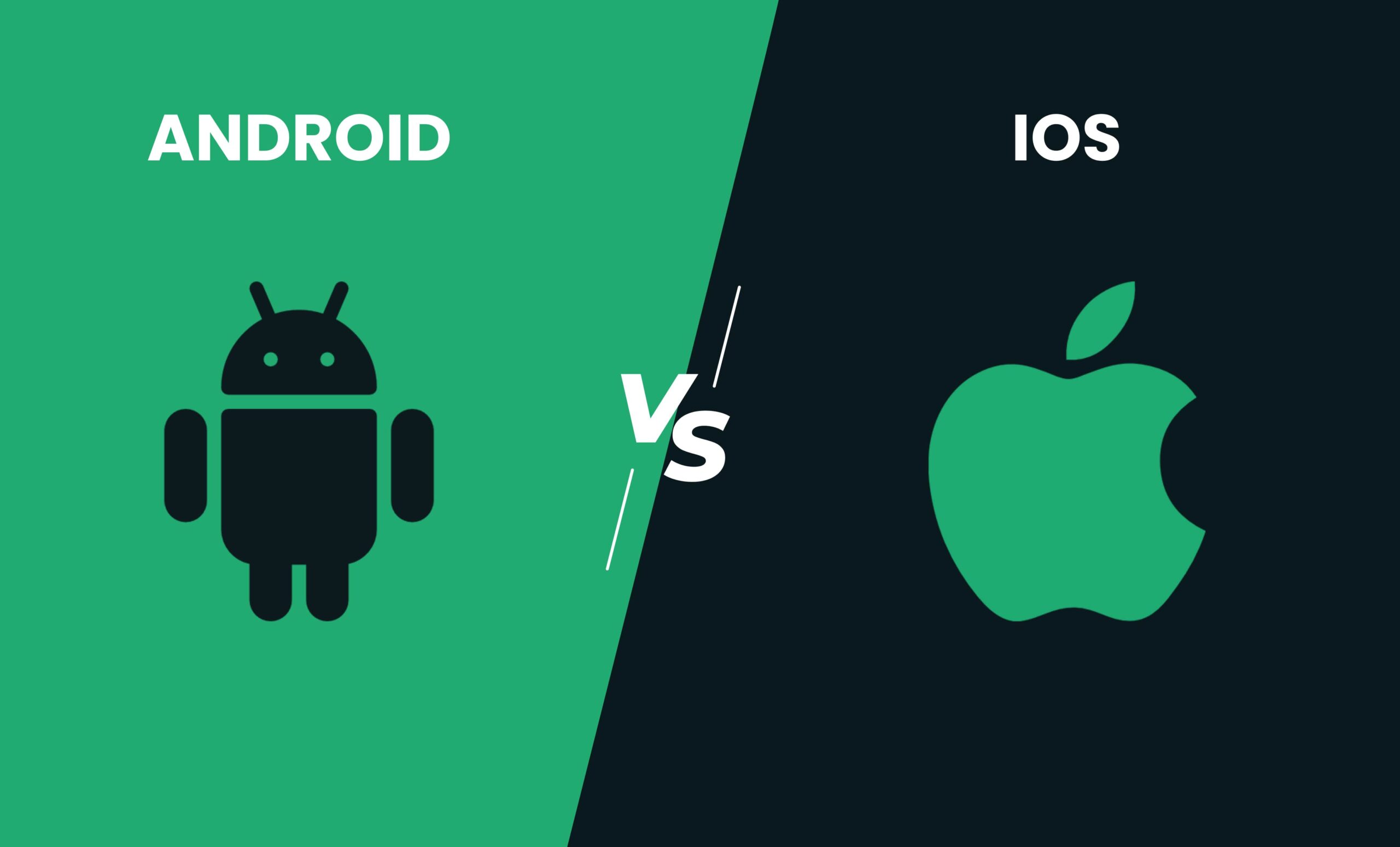Although both Android and Apple’s iOS are popular mobile operating systems, yet, they differ significantly in many respects. For some years, the rivalry between Android and iOS has been the most visible in the IT sector.
Before we can determine which operating system is the best, we must first have a fundamental grasp of each.
| ANDROID | IOS |
|---|---|
| Android is a mobile operating system based on the Linux kernel. | IOS, on the other hand, was developed by Apple Inc. |
| Numerous groups, notably the Open Handset Alliance and Google, have contributed to Android’s growth and mobile development. | It is largely used for the company’s flagship products, such as iPhones, and iPods. |
| Android was created with touchscreen devices in mind, such as tablets and smartphones.
Later, it remained the operating system of choice for the great majority of users worldwide. |
Since the creation of Android, it has become the second most popular operating system among the general population. |
Both of these operating systems differ in a lot of basic ways, and in this article, we’ll look at some of the significant distinctions to determine whether Android or iOS is superior.
- Developmental Tools:
To work on hybrid applications, specifically Android app development, developers use Google’s Android Studio. In terms of popularity and userbase, it has utterly obliterated the previous environment, Eclipse.
Because of the numerous benefits, it provides, like quick debugging, faster performance, and simple deployment, Android Studio is the tool of choice for programmers.
For iOS developers, XCode is the tool of choice. It is the best platform for developing apps for mobile devices such as iPads and iPhones. With the aid of XCode, syntax and logic mistakes may be easily identified.
In contrast, Zenkoders use React Native for both iOS and Android application development, as it serves as a cross-platform technology stack and is the best for hybrid app development.
- Programming languages:
The main difference between the iPhone and the Android is their programming languages. The bulk of Android developers have utilized Java, the original programming language, since its inception. Following Java came C++, which offered some improvements over the Java programming language. In contrast, iOS has always been written in Objective – C. Developers are already abandoning Objective-C in favor of Swift, the new programming language.
Swift can read and understand code substantially faster and more efficiently than Kotlin.
- Interface:
The two operating systems appear to be fairly similar at first glance. Each employs a touch-based user interface. Swiping, tapping, and other commonalities are all present. A status bar displays at the top of the home screen. This is a pool that contains a wealth of information, including Wi-Fi, battery life, and mobile signal strength. There aren’t many UI differences to speak of. On Android, you may add apps like widgets to your home screen. These widgets provide weather updates, a music player, and so forth.
In comparison, iOS just has app icons. iOS, on the other hand, allows you to keep your most frequently used apps at the bottom of the screen.
- Customizability:
Using Android launchers, you can add widgets, customize the home screen layout, and customize the whole user interface (UI). As a result, you may be able to change your Android phone without having to jailbreak it.
It’s more limited when it comes to personalizing iOS. Complete management of an iOS device is practically impossible because even rooting and jailbreaking are limited. Third-party app stores are not widely supported on Apple devices.
- Security and privacy:
Because of its open design and the low frequency with which it is patched, Android is more prone to malware attacks. Furthermore, Android users have difficulties attempting to install third-party programs using APK files.
Android devices are particularly vulnerable to data breaches since Google’s business model is based on data collection. Apple has entirely relied on its own privacy and security measures since the debut of iOS devices. It is not feasible to totally Jailbreak an iOS smartphone Because of the absence of support, third-party apps cannot be installed on iOS devices.
Because iOS delivers security upgrades and patches on a regular basis, the company’s devices are nearly impervious to external hacking efforts. When it comes to user privacy, iOS wins hands down.
- Accessibility:
Both operating systems have been attempting to improve the accessibility of their phones for people with impairments.
People who are deaf or hard of hearing can utilize Android’s Live Transcription feature to hear what is being spoken right in front of them. It also has capabilities like TalkBack, Lookout, and Voice Access, which allow users to interact with the phone by speaking.
Apple’s various accessibility features include the VoiceOver screen reader, magnification, translation, Voice Control, and Pointer Control. Sound Recognition is a feature similar to that found on Android.
Back Tap, a new accessibility feature in iOS 14, allows anybody to do an activity by tapping the back of the phone.
The bottom line:
If you want to experience a successful journey with mobile app development, whether for Android or iOS applications, all you need to do is get in touch with Zenkoders for the best mobile app development services.


